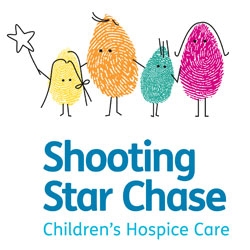*Please note: due to a high number of enquiries at the moment, I may not be able to answer enquiries straight away. Please also be aware, that I have no availability for private piano lessons at the moment. Apologies for this. If you want to know when I might have more available slots, please feel free to send me an email and I will answer as soon as I can. Many thanks!*
Halloween Concert
We are thrilled to announce that we will be holding a Halloween concert to raise money for  the Shooting Star Chase on 30th October at Onslow Village Hall. We look forward to hearing lots of spooky music from our musicians! There will be free refreshments (donations welcome) as well as a Jack O Lantern competition so it promises to be a fun event for everyone! Tickets are £4 for adults and children under 18 can watch for free. If you would like to buy tickets, please email me.
the Shooting Star Chase on 30th October at Onslow Village Hall. We look forward to hearing lots of spooky music from our musicians! There will be free refreshments (donations welcome) as well as a Jack O Lantern competition so it promises to be a fun event for everyone! Tickets are £4 for adults and children under 18 can watch for free. If you would like to buy tickets, please email me.
Charity Concerts
After two hugely successful concerts in 2015, Jasmine and I are pleased to announce that  we have raised £266 for Macmillan Cancer Support and £234 for the Multiple Sclerosis Society!
we have raised £266 for Macmillan Cancer Support and £234 for the Multiple Sclerosis Society!  This is a fantastic result and would not have happened without all your support. By participating in the concert, buying tickets, and giving donations, you have helped us raise £500 for charity in 2015!!
This is a fantastic result and would not have happened without all your support. By participating in the concert, buying tickets, and giving donations, you have helped us raise £500 for charity in 2015!!
We would love to continue this success into 2016, and we look forward to hosting our next concert. More details coming soon!
Spring Concert!
This term, local flute teacher Jasmine Ducker and I are putting on a concert on Sunday 31st May at Onslow Village Hall to display the talents of our students. Adult tickets will be £4 each and  under-18 tickets will be free. There will also be tea, coffee and cake! All proceeds from this concert will go to Macmillan Cancer Support. Tickets will go on sale next week. We do have seating restrictions so we will initially offer two tickets per family, but any leftover tickets after this will be sold on a first come first served basis. Performers (children or adults) will not need a ticket. We are incredibly excited about this concert and are looking forward to seeing you all there!
under-18 tickets will be free. There will also be tea, coffee and cake! All proceeds from this concert will go to Macmillan Cancer Support. Tickets will go on sale next week. We do have seating restrictions so we will initially offer two tickets per family, but any leftover tickets after this will be sold on a first come first served basis. Performers (children or adults) will not need a ticket. We are incredibly excited about this concert and are looking forward to seeing you all there!
Daytime Piano Lessons!
I currently have some availability for lessons on weekdays! Regardless of your age and experience, I can guide you through piano lessons and can help you work towards examinations, or simply just play for fun.
If you’re at home during the day and are looking for a new hobby, feel free to get in contact for more information.
Preparing for your Exam
Preparing for an exam, especially if it is your first grade, can be daunting and it is hard to know what to expect! It is important to remember that the examiner is there to give useful information about your playing and to look at things that could be improved as well as commenting on aspects of your playing that are successful and positive. Performing beforehand on lots of different pianos will help you become accustomed to the feel of different upright and grand pianos as they all have a very different feel. It is also a good idea to perform to as many friends and family as possible. This will help nerves as it can feel very different performing in an exam situation compared with the relaxed nature of a piano lesson. Above all, it is important to enjoy your exam and see it as a positive performance opportunity! Regular practise will help you become comfortable when playing your pieces and scales and your teacher will practice the aural tests and sight reading with you on a regular basis.
For more information on the preparation involved in taking your graded exams, follow this link: http://www.abrsm.org/resources/theseMusicExams0607.pdf
Hand and Arm Strain When Playing
Something that commonly affects musicians is arm/hand strain when playing. This can affect beginners and advanced pianists alike and is something that I have suffered from in the past. I also tend to see it in new pupils as they are not used to the positions adopted when starting to play. Problems such as Repetitive Strain Injury (RSI) and tendonitis can arise if bad habits are adopted long term. Thankfully, there are ways to avoid this with some simple adjustments to posture and seating position when practising.
The way you sit is incredibly important as being too high or low can hurt your back, shoulders and arms, especially if playing for long periods of time. Preferably, the arms should be horizontal with the elbows just below the level of the keyboard and the hands should be relaxed. I used to carry a lot of tension in my shoulders and upper back and so I now consciously try to keep my back straight and my shoulders open and dropped down instead of hunched. A lot of people tend to think that good finger dexterity comes from tensing the muscles in order to strengthen them but you will find that the hands become stronger and more flexible if they are kept relaxed and heavy. Lastly, the most important thing you can do to avoid painful arms when playing is to ensure you have regular breaks when practising and try to play for short periods of time throughout the week so your piano lesson is not too much of a shock for your muscles! Keeping healthy also helps and I used to do Pilates and the Alexander Technique to strengthen muscles and help my posture.
Following these simple steps and getting in to good habits right from the start can avoid any problems later on and will keep your piano playing enjoyable and relaxing.
Information on Associated Board Piano Examinations
At some stage in your piano lessons, you will be given the option of taking graded music exams with the Associated Board of the Royal School of Music (ABRSM). These range from the Preparatory Test right through to grade 8 and eventually the performance Diplomas. In the Prep Test, there are two short pieces of music to play along with a selection of finger exercises. There are also some musical questions about rhythm and dynamics etc. There is no “pass” or “fail” for this exam. Instead, the examiner writes a detailed assessment of the student’s performance and gives advice and tips for improving your piano playing. A lot of pupils find it helpful to learn the Prep Test music even if they are not intending to take the exam as it is a useful way to establish how you are progressing.
After the Prep Test, there are the graded exams (1-8). In all of these exams, you will learn three pieces from a selection of music published in the ABRSM books. You also have to learn all the scales and arpeggios for the grade. Finally, there is a sight reading test and aural tests which your piano teacher will help you with in the run up to the exam. The results are out of 150 possible marks; 100 will give you a pass, 120 will give you a merit and 130 will give you a distinction.
The exciting news for 2011 is that a new syllabus has been created by the board! There is a wide range of music including baroque, classical and romantic pieces as well as American spirituals, jazz pieces and contemporary music. For more information about the new syllabus and where to find the exam centres in Brighton and Hove, follow this link: